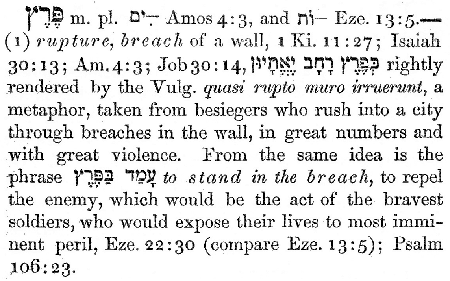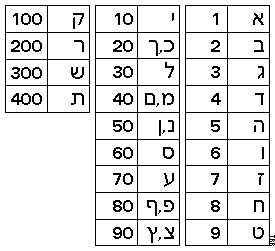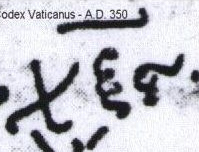Last updated: 2021-08-19
What on earth am I talking about? Well, in a former post, I described a theory that David had the priesthood of Melchizedek because he was able to eat the show-bread and offer sacrifices:
https://hebrewroots.communes.org/2019/05/19/yeshua-and-the-heart-of-sabbath-law/ In addition, David’s son’s are called “priests” in 2 Samuel 8:18. The question I answer in this post is: where did David get that priesthood? Here’s the first mention of Melchizedek in the Bible: (All verses are in the NRSV unless otherwise noted)
17 After his return from the defeat of Chedorlaomer and the kings who were with him, the king of Sodom went out to meet him at the Valley of Shaveh (that is, the King’s Valley). 18 And King Melchizedek of Salem brought out bread and wine; he was priest of God Most High. 19 He blessed him and said,
“Blessed be Abram by God Most High,
maker of heaven and earth;
20 and blessed be God Most High,
who has delivered your enemies into your hand!”
And Abram gave him one-tenth of everything. (Gen 14:17-20)
Here’s what Hebrews says about the previous passage:
1 This “King Melchizedek of Salem, priest of the Most High God, met Abraham as he was returning from defeating the kings and blessed him”; 2 and to him Abraham apportioned “one-tenth of everything.” His name, in the first place, means “king of righteousness”; next he is also king of Salem, that is, “king of peace.” 3 Without father, without mother, without genealogy, having neither beginning of days nor end of life, but resembling the Son of God, he remains a priest forever.
4 See how great he is! Even Abraham the patriarch gave him a tenth of the spoils. 5 And those descendants of Levi who receive the priestly office have a commandment in the law to collect tithes from the people, that is, from their kindred, though these also are descended from Abraham. 6 But this man, who does not belong to their ancestry, collected tithes from Abraham and blessed him who had received the promises. 7 It is beyond dispute that the inferior is blessed by the superior. 8 In the one case, tithes are received by those who are mortal; in the other, by one of whom it is testified that he lives. 9 One might even say that Levi himself, who receives tithes, paid tithes through Abraham, 10 for he was still in the loins of his ancestor when Melchizedek met him. (Hebrews 7:1-10)
The Christian Courier has this to say about Hebrews 7:3:
None of the expressions in Hebrews 7:3 is to be assigned a literal meaning. Rather, they are terms that depict the nature of Melchizedek’s priesthood, in contrast to the Aaronic priesthood, as such prevailed under the Mosaic regime.
A careful consideration of the context is essential in the interpretation of these expressions.
It was not that Melchizedek was “without father, without mother” literally, or that he had no genealogical background.
No, the truth being conveyed was this. Whereas the Aaronic priesthood resulted from being a part of a family line (i.e., the descendants of Aaron, Moses’ brother) the priesthood of Melchizedek was bestowed directly by God.
And it was precisely in this manner that the Lord Jesus was appointed as our High Priest. He did not inherit it by means of a physical lineage (cf. Hebrews 7:14).
https://www.christiancourier.com/articles/920-questions-about-melchizedek
They give an example in ancient literature:
An Example of Ancient Language
There is an interesting text from one of the Amarna letters (more than 350 clay tablets from the Royal Egyptian archives, cir. 1400-1360 B.C.) that illustrates this matter. These letters were produced by scribes in Canaan, Phoenicia, and southern Syria.In one of these letters (No. 286) there is the claim of Abdu-Heba, king of Urusalim [Jerusalem], which says:
“Behold, as for me, it was not my father and not my mother who set me in this place; the arm of the mighty king brought me into the house of my father!” (Pritchard, 1958, pp. 269-270).
This is not to suggest that Abdu-Heba was Melchizedek, only that the circumstance of bestowal in the former’s case is strikingly similar to the language regarding Melchizedek.
Melchizedek was not without physical parents. The reality was, he did not owe his position to them. The same was true with reference to Christ. It was not his Hebrew lineage that brought him to the priesthood. It was by means of a direct appointment of Jehovah.
https://www.christiancourier.com/articles/920-questions-about-melchizedek
The passage they refer to is this one:
For it is evident that our Lord was descended from Judah, and in connection with that tribe Moses said nothing about priests. (Hebrews 7:14)
However, im going to modify their approach slightly. What if this priesthood is bestowed by God like the priesthood of Phinehas but is also for his descendants?
7 When Phinehas son of Eleazar, son of Aaron the priest, saw it, he got up and left the congregation. Taking a spear in his hand, 8 he went after the Israelite man into the tent, and pierced the two of them, the Israelite and the woman, through the belly. So the plague was stopped among the people of Israel. 9 Nevertheless those that died by the plague were twenty-four thousand.
10 The Lord spoke to Moses, saying: 11 “Phinehas son of Eleazar, son of Aaron the priest, has turned back my wrath from the Israelites by manifesting such zeal among them on my behalf that in my jealousy I did not consume the Israelites. 12 Therefore say, ‘I hereby grant him my covenant of peace. 13 It shall be for him and for his descendants after him a covenant of perpetual priesthood, because he was zealous for his God, and made atonement for the Israelites.’” (Num 25:1-13 NRSV emphasis mine)
They also go on to quote F. F. Bruce who notes that what is left out of scripture may be treated as divinely inspired in the same way as scripture itself:
No beginning of days or end of life
Nor is the phrase, “having neither beginning of days nor end of life,” to be pressed literally. Surely no one contends that Melchizedek is still alive somewhere upon the earth! Here is the reality of the situation.According to the biblical record, the Levitical priests served in the tabernacle from the time they were twenty-five years of age, until they were fifty (Numbers 8:24-25), but no such limit is suggested in the scripture record regarding Melchizedek.
As far as the Genesis narrative reveals, there was neither beginning nor end to his administration. And, as F. F. Bruce observed, in this respect “the silences of the Scripture were as much due to divine inspiration as were its statements” (1990, p. 160).
In the case of Christ, our “High Priest” (this designation being used seventeen times in the epistle to the Hebrews), the Lord will serve in this capacity throughout the span of his entire reign, until such fades into that eternal administration (cf. Revelation 5:13b).
https://www.christiancourier.com/articles/920-questions-about-melchizedek
Where else do we see someone without a genealogy? In fact, there’s someone mentioned without even a name, Tamar’s father:
Then Judah said to his daughter-in-law Tamar, “Remain a widow in your father’s house until my son Shelah grows up”—for he feared that he too would die, like his brothers. So Tamar went to live in her father’s house. (Gen 48:11 NRSV)
We might say of him “he is without father and mother and without name just as God answered the question of his name with ‘I am.'” This isn’t to suggest that he is God just a typology of God. When Judah finds out that she has become pregnant he gives the same punishment for her that was given for the daughter of a priest:
When the daughter of a priest profanes herself through prostitution, she profanes her father; she shall be burned to death. (Leviticus 21:9 NRSV)
About three months later Judah was told, “Your daughter-in-law Tamar has played the whore; moreover she is pregnant as a result of whoredom.” And Judah said, “Bring her out, and let her be burned.” (Gen 38:24 NRSV)
As a side note I don’t think it meant “burned alive” (see misconception 9) and I don’t think this was mandated as an exact punishment (see misconception 10) here: https://hebrewroots.communes.org/2020/04/09/a-list-of-torah-misconceptions-in-short/
Tamar means “palm tree.” https://www.blueletterbible.org/lang/lexicon/lexicon.cfm?Strongs=H8559&t=KJV Palm branches are symbolic of victory in the Bible and are used in John and Revelation:
So they took branches of palm trees and went out to meet him, shouting,
“Hosanna!
Blessed is the one who comes in the name of the Lord—
the King of Israel!” (John 12:13 NRSV emphasis mine)
4 And I heard the number of those who were sealed, one hundred forty-four thousand, sealed out of every tribe of the people of Israel:
5 From the tribe of Judah twelve thousand sealed,
from the tribe of Reuben twelve thousand,
from the tribe of Gad twelve thousand,
6 from the tribe of Asher twelve thousand,
from the tribe of Naphtali twelve thousand,
from the tribe of Manasseh twelve thousand,
7 from the tribe of Simeon twelve thousand,
from the tribe of Levi twelve thousand,
from the tribe of Issachar twelve thousand,
8 from the tribe of Zebulun twelve thousand,
from the tribe of Joseph twelve thousand,
from the tribe of Benjamin twelve thousand sealed.
9 After this I looked, and there was a great multitude that no one could count, from every nation, from all tribes and peoples and languages, standing before the throne and before the Lamb, robed in white, with palm branches in their hands. 10 They cried out in a loud voice, saying,
“Salvation belongs to our God who is seated on the throne, and to the Lamb!”
11 And all the angels stood around the throne and around the elders and the four living creatures, and they fell on their faces before the throne and worshiped God, 12 singing,
“Amen! Blessing and glory and wisdom
and thanksgiving and honor
and power and might
be to our God forever and ever! Amen.”
13 Then one of the elders addressed me, saying, “Who are these, robed in white, and where have they come from?” 14 I said to him, “Sir, you are the one that knows.” Then he said to me, “These are they who have come out of the great ordeal; they have washed their robes and made them white in the blood of the Lamb.
15 For this reason they are before the throne of God,
and worship him day and night within his temple,
and the one who is seated on the throne will shelter them.
16 They will hunger no more, and thirst no more;
the sun will not strike them,
nor any scorching heat;
17 for the Lamb at the center of the throne will be their shepherd,
and he will guide them to springs of the water of life,
and God will wipe away every tear from their eyes.” (Rev 7:4-17 NRSV emphasis mine)
This imagery of victory and judgement is also used in Psalm 110 to speak of Melchizedek and you can see that his priesthood was a priesthood to the world rather than to just the house of Israel:
1 The Lord says to my lord,
“Sit at my right hand
until I make your enemies your footstool.”
2 The Lord sends out from Zion
your mighty scepter.
Rule in the midst of your foes.
3 Your people will offer themselves willingly
on the day you lead your forces
on the holy mountains.
From the womb of the morning,
like dew, your youth will come to you.
4 The Lord has sworn and will not change his mind,
“You are a priest forever according to the order of Melchizedek.”
5 The Lord is at your right hand;
he will shatter kings on the day of his wrath.
6 He will execute judgment among the nations,
filling them with corpses;
he will shatter heads
over the wide earth.
7 He will drink from the stream by the path;
therefore he will lift up his head. (Psalm 110:1-7)
Keil and Delitzsch note:
The New Testament also assumes elsewhere that David in this Psalm speaks not of himself, but directly of Him, in whom the Davidic kingship should finally and for ever fulfil that of which the promise speaks. For Psalm 110:1 is regarded elsewhere too as a prophecy of the exaltation of Christ at the right hand of the Father, and of His final victory over all His enemies: Acts 2:34. https://biblehub.com/commentaries/kad/psalms/110.htm
A priesthood–as we saw with Phinehas–can be an intercession for man before God in order to abolish sin and prevent wrath from falling. Since Tamar’s treatment fits a priest’s daughter we may speculate that Tamar’s father was a priest even though Moses said nothing about priests being in Judah.
For it is evident that our Lord was descended from Judah, and in connection with that tribe Moses said nothing about priests. (Hebrews 7:14)
Tamar is also in the genealogy of David and hence Christ. The priesthood of Melchizedek is messianic in nature and so it may have descended from Eve.
I will put enmity between you and the woman,
and between your offspring and hers;
he will strike your head,
and you will strike his heel.” (Gen 3:15)
Hence Tamar may be able to carry on the priesthood since it descends through the female line as well as the male line. This priesthood may have originally started with Adam but then been given to Eve after the fall: https://sbts-wordpress-uploads.s3.amazonaws.com/equip/uploads/2018/10/SBJT-22.2-Adam-as-Priest-Beale.pdf Even if the women weren’t priests themselves it may be the case that it could be passed through the female line. Also, the interventions that God does to make sure Tamar conceives (such as killing Onan) seems to oddly focus on her rather than Judah (since Judah had other descendants) This passage from Ruth is also interesting: (bolded words are mine)
9 Then Boaz said to the elders and all the people, “Today you are witnesses that I have acquired from the hand of Naomi all that belonged to Elimelech and all that belonged to Chilion and Mahlon. 10 I have also acquired Ruth the Moabite, the wife of Mahlon, to be my wife, to maintain the dead man’s name on his inheritance, in order that the name of the dead may not be cut off from his kindred and from the gate of his native place; today you are witnesses.” 11 Then all the people who were at the gate, along with the elders, said, “We are witnesses. May the Lord make the woman who is coming into your house like Rachel and Leah, who together built up the house of Israel. May you produce children in Ephrathah and bestow a name in Bethlehem; 12 and, through the children that the Lord will give you by this young woman, may your house be like the house of Perez, whom Tamar bore to Judah.”
13 So Boaz took Ruth and she became his wife. When they came together, the Lord made her conceive, and she bore a son. 14 Then the women said to Naomi, “Blessed be the Lord, who has not left you this day without next-of-kin; and may his name be renowned in Israel! 15 He shall be to you a restorer of life and a nourisher of your old age; for your daughter-in-law who loves you, who is more to you than seven sons, has borne him.” 16 Then Naomi took the child and laid him in her bosom, and became his nurse. 17 The women of the neighborhood gave him a name, saying, “A son has been born to Naomi.” They named him Obed; he became the father of Jesse, the father of David.
18 Now these are the descendants of Perez: Perez became the father of Hezron, 19 Hezron of Ram, Ram of Amminadab, 20 Amminadab of Nahshon, Nahshon of Salmon, 21 Salmon of Boaz, Boaz of Obed, 22 Obed of Jesse, and Jesse of David. (Ruth 4:9-22 NRSV)
Obed means “to serve” and he is the ancestor of the suffering servant who brings victory over the serpent and makes his enemies his footstool. Perez means “breach” and is used for an invasion into a city and sometimes where the wrath of God fell in judgement:

7 The anger of the Lord was kindled against Uzzah; and God struck him there because he reached out his hand to the ark; and he died there beside the ark of God. 8 David was angry because the Lord had burst forth with an outburst upon Uzzah; so that place is called Perez-uzzah, to this day. (2 Samuel 6:7-8 NRSV)
Here Moses has a priestly function by turning away the wrath of God:
Therefore he said he would destroy them—
had not Moses, his chosen one,
stood in the breach before him,
to turn away his wrath from destroying them. (Psalm 106:23)
Richard Bauckham also has this to say on pages six and seven of his article: “Tamar’s Ancestry and Rahab’s Marriage: Two Problems in the Matthean Genealogy” showing that the view I presented of Tamar was in Jewish tradition:


In addition ‘The Encyclopedia of Jewish Women” states:
According to the Biblical account, Tamar was most likely a Canaanite. The midrash is relatively silent on her life before she married into the family of Judah. One tradition asserts that she was an orphan and was converted in order to marry (BT Sotah 10a), while another claims that she was the daughter of Melchizedek, king of Salem, who was “a priest of God Most High” (Gen. 14:18). Consequently, Judah judged her according to the laws pertaining to the daughter of a priest (which are set forth in Lev. 21:9) and ordered that she be burnt when he thought that she had become pregnant as a result of an illicit tryst (Gen. Rabbah 85:10).
https://jwa.org/encyclopedia/article/tamar-midrash-and-aggadah
I know Tamar’s priesthood is mostly speculation but it’s quite fascinating if it were true.





